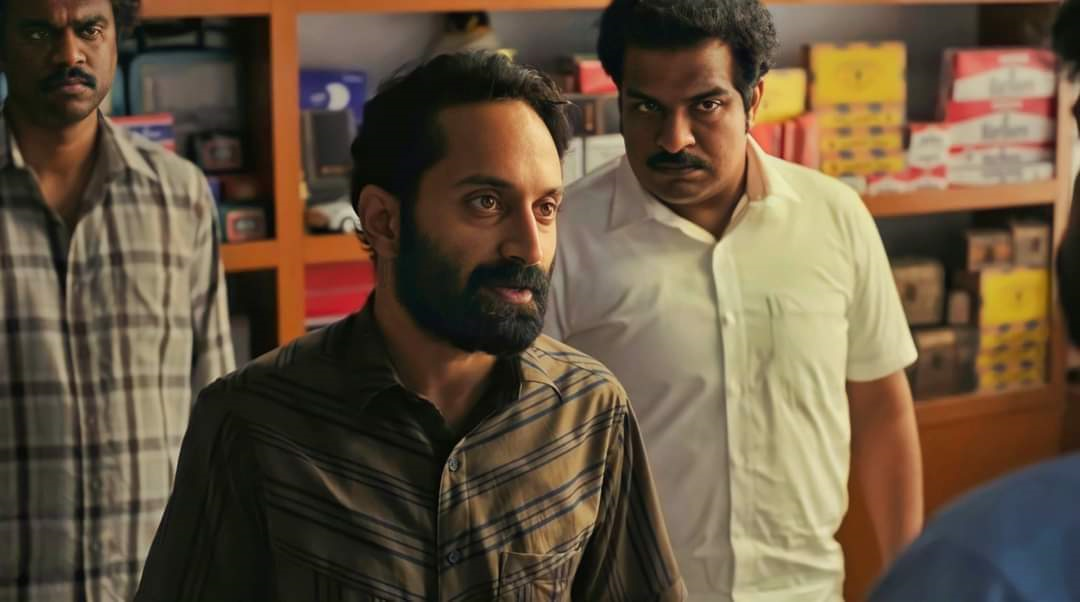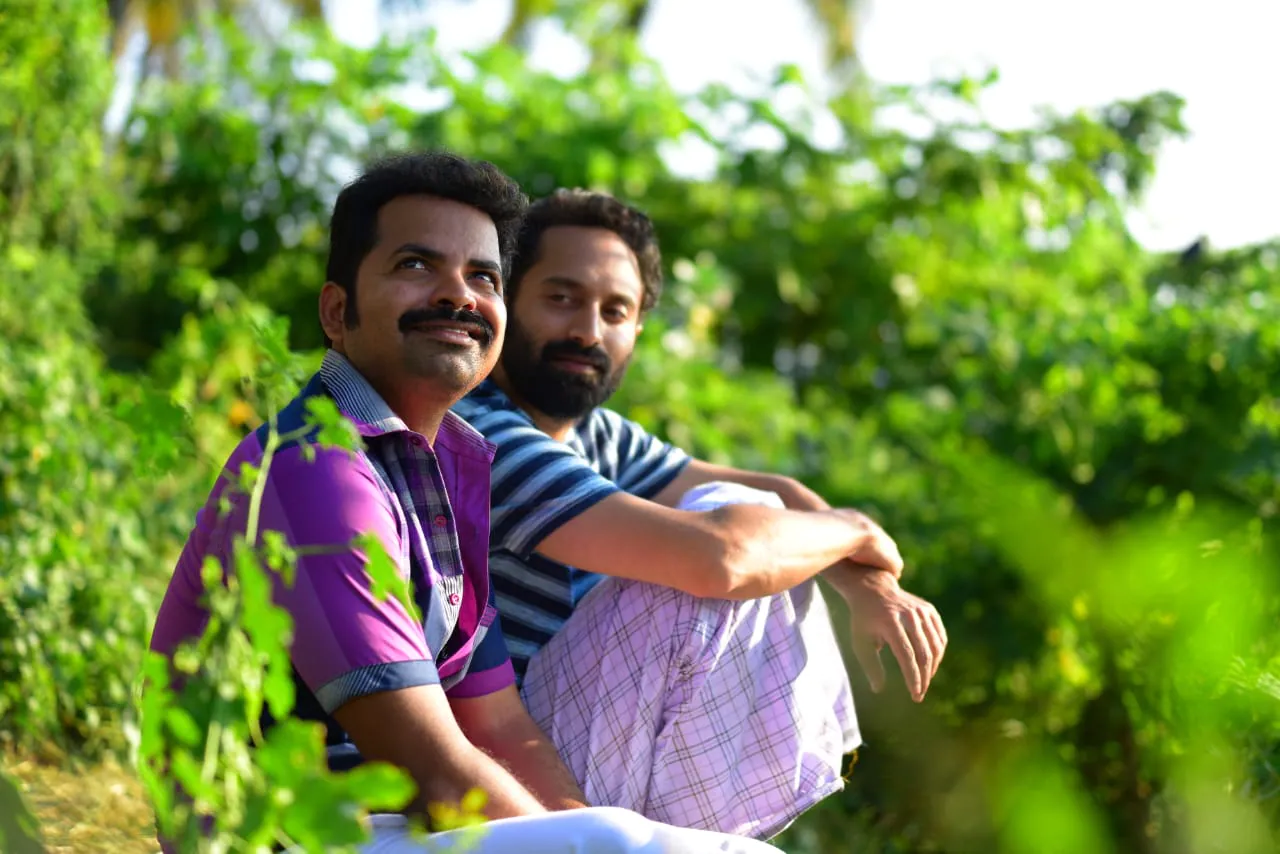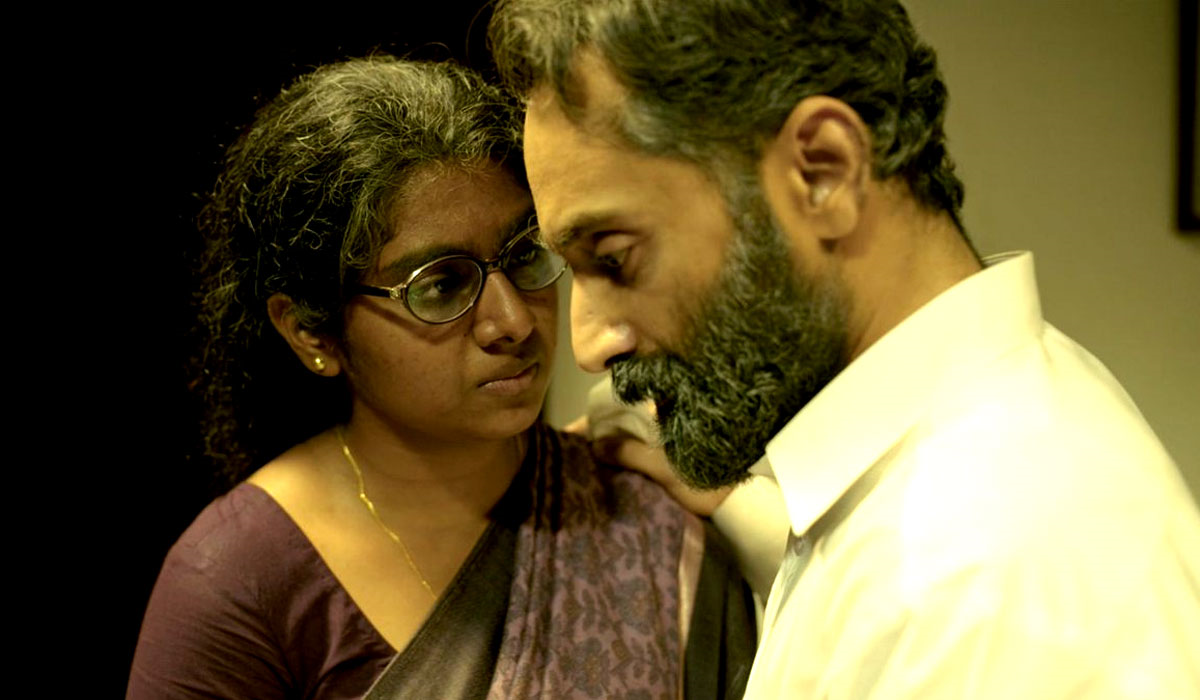
In a stirring scene in Mahesh Narayanan’s Malik, the leading man Sulaiman alias Ali Ikka (Fahadh Faasil) engages in a quarrel around his father’s burial spot which is now a wasteyard. Badly assaulted by cops, a group of people later dumps him in the very same pile of waste. There is darkness and the melancholy of violin for ambience. It’s a classic Fahadh Faasil sequence where a broken man comes out of stink with decisiveness in the eyes. Sulaiman’s vision is to build a school at the very same spot. His mother reacts with welled-up eyes, “Once in my life, I felt happy that I had given birth to him,” When the district collector quizzes if he has the resources to make it happen, he quips, “Even though we don’t have the money now, we have the health to earn it,”
No, Mahesh Narayan’s film is not one about education or emancipation. It is about dreams and doing good for one’s people – dismantling all hurdles. The prime barrier is religion even though it never posed to be a visible enemy. Way early in the film, we observe how it lies in the very fabric of the setup Malik constructs. The altercation around waste dumping occurred between Muslims and Hindus but it goes way beyond. We hear Sulaiman’s friend and confidante David (Vinay Forrt) screaming in a consequence scene, “Your mosque issue has affected us (Christians) too,” Interestingly, Malik never becomes a generic social piece that blindly hails humanity and communal harmony. It exposes how religion is the easily fired trigger to split an otherwise peaceful social framework.
Mahesh Narayanan opens his film with a fascinating long shot that runs for about 12 minutes. A Godfather-like figure in sparkling white attire, Sulaiman is off to the Hajj pilgrimage. Shot using dim lights with minimal colours, the scene establishes the man’s authority as well as the tension that surrounds his decision. Soon, at the airport, Sulaiman is captured under the TADA act for the possession of illegal weapons.
In a parallel track, we observe a bunch of 17-year-olds throw bombs at policemen for unexplained reasons, with one of them (Sanal Aman as Freddy) landing up in the prison. In a flashback narrated by Sulamain’s mother, Jameela Teacher (Jalaja) examines the bewildering context behind the turn of events. I wasn’t particularly convinced with the way it chose to unfold. The writers are unable to link the Kerala police’s (Indrans, Chandunath) decision to insert Freddy and Jameela as pawns in their strategy.

Cut to the ‘80s, Mahesh Narayanan gives us a glimpse of a largely harmonious society around the picturesque Ramadapally in coastal Kerala. Sulaiman and David, then adolescents, play rough pranks on the local priest and later kickstart a flourishing business around smuggled goods imported from the Middle East. David’s brave and decisive sister Roselin (Nimisha Sajayan) happens to be the only college-educated girl in the village. She cultivates a natural affection for Sulaiman and he duly reciprocates. Their enterprising friend Aboo (Dileesh Pothan) is a man who has his eyes on the power ladders whereas the initially suspicious sub-collector Anwar Ali (Joju George) is all for Sulaiman’s wish to build a school in Ramadapally.
The first twist drops when a blast happens in the warehouse leading to the deaths of many, including minors. From then on, Malik becomes a gripping labyrinth of human relationships as it masterfully studies people and their belief systems in the rawest of terms. If Sulaiman takes revenge by brutally killing a man called Chandran (Nisthar) who was behind the blast, his righteous mother testifies against him. If David is a tad disappointed about his religion being sidelined in the scheme of things – which includes the naming of the school – is further vilified when his sister chooses to marry Sulaiman. He never voices it out, but his impulses do. So does the well-meaning Anwar Ali who inadvertently brews a fire in David’s mind about the count of paybacks and a resultant identity that the local Christians have been denied of. This way, David evolves into the quintessential misinformed victim – a stock character in this widely recognized subgenre of films. David is never let to have a messiah’s halo, like Sulaiman who breaks open the school gate – much against the Jamaat’s decision – to rehabilitate Tsunami victims of Ramadapally. To remind us that we are in for a commercial Malayalam fare, he spouts a thunderous punch-line, “Naadu mudiyaan nilkumbolano ninteyokke matham parachil”. (Translates roughly to: “You are talking religion when our land is suffering?)
On the personal front, Roselin is not only a pillar of support to Sulaiman but an equal partner in the relationship. In a rare romantic scene between the two, Sulaiman requests his newly wedded wife to bring up their children as per Islam faith while not asking her to convert. It’s a tender moment and he gets Roselin’s approval in an instant. This cordial exchange, taking place in the ‘90s, makes us ponder over an educated woman’s autonomy in deciding her children’s religion.
Mahesh Narayanan’s screenplay does not work very hard to manifest the changing ways of Sulaiman and Roselin’s equation in the most expository fashion – primarily because it isn’t their story. Malik is about a community with Sulaiman becoming its pivot. Having said that, we do observe how Roselin always constantly orbits Sulaiman’s life while commanding reasonable authority in the network herself.

Now, the prototype that Narayanan draws in Malik is time-tested. We have celebrated the format in The Godfather. Closer home, India has repackaged it in great, good, and godawful films. I can think of Nayakan, Abhimanyu, Lucifer, and umpteen Rajnikanth-starrers to draw parallels with. Then again, I never had an issue with the jaded story and a hero with unthinkable grit and survival instinct. It’s about how Narayanan (who is also the editor) successfully engages us during the film’s long run-time (2.41 hours).
The twists, as a matter of fact, can be seen coming from a distance. Several individual scenes – including their staging – are predictable. Yet, one ought to trust Narayanan’s judicious shot-taking and the actors’ (especially Fahadh’s) mettle to convince us even of the most unsurprising turnarounds. The pre-climax where Freddy meets Sulaiman in the prison cell, for example, is significantly hyped in the screenplay. Yet, we watch it awe it purely because of the players who nonchalantly sip the age-old wine packaged in a sparkling new bottle. That said, the climactic twist, despite its shock value, comes without any grounding. The character who executes it is shown to throw misleading hints in the earlier reels and Malik is not even a suspense thriller to demand a need for the same.
Narayanan’s film scores brownie points by not becoming an excruciating character-driven crime saga, which is something a good majority of its precursors proved to be. In Malik, Ramadapally as a backdrop assumes its own temperament. So do its inhabitants. There are rare chants sung to hail Sulaiman and the highest degree of hero-worship goes via dialogues such as, “Nobody in Ramadapally has the courage to kill Sulaiman,” Yet, I sorely missed was a chapter that explained his grip over his people. If at all the title was meant to equate him to Maalik, the Islamic angel in Barzakh who administrates the Hellfire, Narayanan’s film chooses not to develop this metaphor.
While the screenplay has its share of incongruences, Narayanan’s dexterous editing skills come wholly into place as he turns a familiar story into a wholesome product elevated by technique. If Sanu John Varughese treats his camera as a marvellous plaything to give us long shots, brisk zooms, pans, and tilts that catch us unawares. The chemistry that he forges with Narayanan in the editing stage hits its pinnacle in the final act where they capture Sulaiman’s agony upon losing his son. Sushin Shyam’s music is extraordinary, and it reaches the emotional crescendo when he evocatively integrates the theme song ‘Theerame’ (which also appears as a silken love ballad) to systematically heighten the drama in key sequences.
ALSO READ: ‘C U Soon’ review – Mahesh Narayanan’s film is a modern filmmaking marvel
Malik boasts of principal performers who do not make a single false note. Fahadh Faasil expectedly internalises the fire that brews within Sulaiman. It is a pleasure to see him execute some of the most un-Fahadh-ly scenes (notably as his older self). The makeup might not be perfect but the actor – with his studied, frail physicality – is a sumptuous treat to the eyes. Giving him great company is a brilliant Nimisha Sajayan who would deliver a volcano of emotions with a minor twitch of the eyebrows. Veteran Jalaja makes a powerful comeback as the quietly courageous Jameela Teacher whereas Vinay Forrt gives a smashing account of himself in a character that does not entirely do justice to his boundless energy and enthusiasm. Indrans as C. I. George is exceptional as he effortlessly reveals the coldness of his profession to a T. Joju George, Dinesh Prabhakar, Salim Kumar, and relative newbies Parvathy R Krishna and Sanal Aman do very well in their respective parts. Aman, especially, is a revelation despite not having too many dialogues to mouth besides having to face seasoned performers (Faasil and Jalaja) in hugely mounted sequences. However, the man who takes the cake in the supporting cast is Dileesh Pothan as the scheming Aboo. It is not hard to notice the clever touches he lends to a man who climbs the power hierarchy with his agenda firmly in place.
Malik ends with a marginally forced climax which rips off the Kerala Police’s role in the turn of events (the film is reportedly inspired by the controversial Beemapally riots of 2009). Of course, they are projected as a despicable, corrupt force, but the makers find it more cinematic to pin down the responsibility of several mishaps to one individual with a conclusive plot to deviate the mindsets of a community. That said, Mahesh Narayanan’s third directorial effort is a tremendously immersive experience. Its people possess individuality and they unanimously flaunt shades of grey, thereby preventing Malik from becoming an ordinary triumph-of-righteousness saga that drops a simplistic message on religious polarisation.
Rating: ★★★ 1/2
Malik premiered on Amazon Prime Video.

